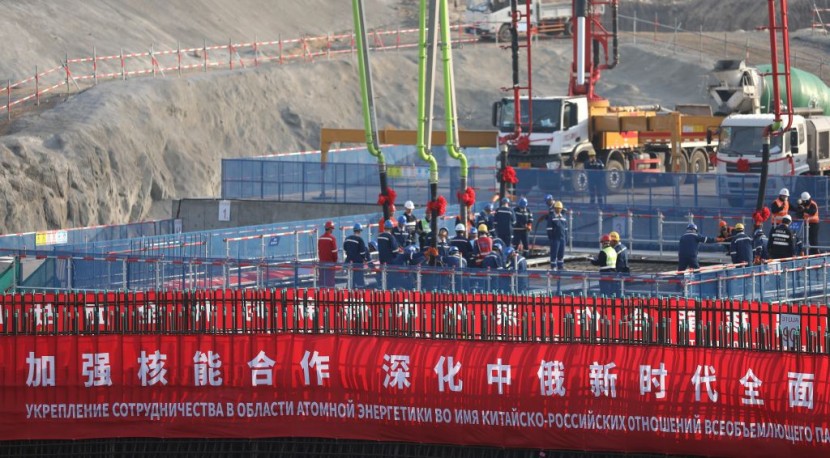
Satellite images show China is building more than 100 new missile silos in the northwest desert, sparking worries of the incredible growth of its nuclear weapons. According to experts from the Middlebury Institute of International Studies' James Martin Center for Nonproliferation Studies, the satellites picked up building activities at Yumen, including underground bunkers, cable tunnels, roadways, and a small military base.
The silos appear to be replicas of China's current launch sites for nuclear-tipped ballistic missiles. The acquisition of more than 100 additional silos would mark a significant change for China, which was previously considered to have just a small nuclear arsenal of 250 to 350 missiles, much fewer than the US and Russia.
China's nuclear expansion is concerning
Analysts warned that the growth was an "alarming phenomenon" but cautioned against "worst-case thinking," citing tensions between major nuclear countries over disarmament as an example. The locations were discovered by fellow researcher Decker Eveleth, who was tasked with detecting patterns from similar missile silos China has erected in Inner Mongolia, according to Jeffrey Lewis, head of the East Asia Nonproliferation Program at CNS.
China might be engaging in a "shell game," according to Lewis, referring to a technique used by the United States during the Cold War. It entails shuttling a smaller number of missiles amid a larger number of silos to hide the real location and size of one's nuclear arsenal, Newsweek via MSN reported.
Lewis wrote in Foreign Policy on Thursday that the images, which were provided by private satellite company Planet, revealed that an array of under-construction ICBM silos sprawled across 700 square miles of desert was "jaw-dropping." He believes the silos, which are roughly 2 miles apart and have a potential range of 9,300 miles, are most likely for China's newest DF-41s. The People's Liberation Army Rocket Force's intercontinental ballistic missiles were unveiled at China's National Day parade in 2019.
Read Also: Biden Orders Airstrike Against Iran-Backed Militia Groups in Iraq, Syria Border
The US urged China to cooperate
Per Yahoo News, China's buildup had grown more difficult to conceal, and it looked that it was departing from decades of nuclear policy focused on limited deterrence, according to State Department spokesman Ned Price, who spoke at a regular press conference on Thursday. Price was replying to a question on a report in the Washington Post claiming that China has started construction on more than 100 new missile silos in a desert area in the country's west.
Washington had taken note of Chinese leader Xi Jinping's remarks at a ceremony on Thursday, marking the 100th anniversary of the Chinese Communist Party Foundation, Price said. However, he refused to give specific details.
Foreign forces seeking to coerce China would "have their heads bashed," according to Xi, who also promised to strengthen China's military. He also pledged to "reunify" Taiwan and stated that social stability in Hong Kong would be maintained as China's security and sovereignty were protected.
Beijing claims that its arsenal is dwarfed by that of the US and Russia and that it is willing to engage in bilateral strategic security discussions "based on equality and mutual respect." The Pentagon forecasts China's nuclear weapon stockpile to be in the "low 200s" in a 2020 report to Congress and believes it will at least quadruple in size as Beijing develops and modifies its troops.
Price said the People's Republic of China appears to be departing from decades of "minimum deterrence" policy. He also called China's nuclear development "concerning." He urged China to cooperate with the US to minimize the "risks of destabilizing arms races," as per Daily Express.
As China recovers quickly from the COVID-19 pandemic and asserts itself more aggressively on the world scene, Xi Jinping and the party are riding high. Beijing, on the other hand, is facing international condemnation for its crackdown in Hong Kong and treatment of ethnic minorities in Xinjiang, as well as a deteriorating demographic outlook that threatens long-term economic development.
Related Article: US, Japan Elevate Military Exercises as Japanese Official Warns of Potential Surprise Attack From Russia and China
@YouTube








